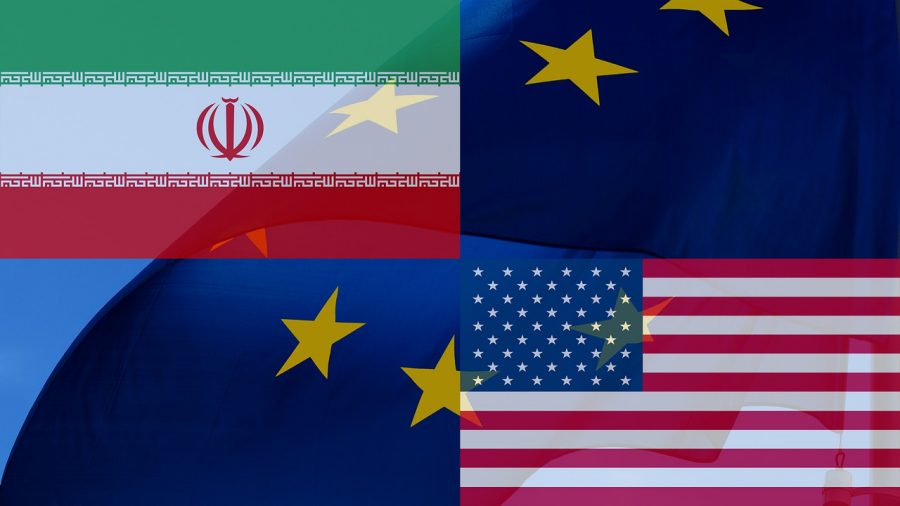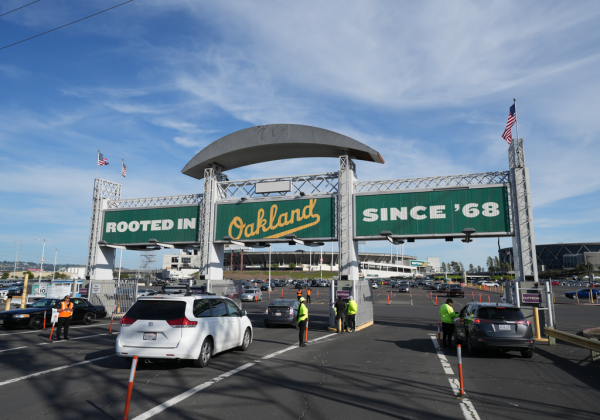Iran-U.S. feud: an avoided war?
Photo Pixabay
Iran and the U.S. have been at odds with each other for decades, ranging back as far as the 1950s when America became involved in the country’s democracy and leadership.
Recently, President Donald Trump has substantially affected the relationship between the countries through events such as his withdrawal from the Iran nuclear deal in 2018. Now, as 2019 has ended and the new year is beginning, attacks are becoming more frequent, and the increase in tension is leaving many Americans worried about the possibility of a large-scale war on the horizon.
On Dec. 31, an attack took place on the U.S. Embassy in Baghdad, Iraq as hundreds of pro-Iranian demonstrators scaled the walls, forced the gates open, lit fires, battered down doors and lobbed bricks at the bulletproof glass. All of this was in protest of previous U.S. air strikes targeting facilities in Iraq and Syria, which the Pentagon claims were a response to pro-Iranian militias attacking U.S. service personnel in Iraq.
Soon after, on Jan. 3, Trump ordered a U.S. drone strike in Iran, killing Iran’s top general Qasem Soleimani, who had strong ties to this pro-Iranian militia. The U.S. claimed the attack was a defensive action. However, on Jan. 12, the Defense Secretary said that he did not see any specific threats from Iran.
In Trump’s speech following the attacks, he claimed that Soleimani should have been terminated by previous presidents, referring to Soleimani as the “world’s top terrorist.” After Soleimani’s death, Iranians held marches and protests throughout the country chanting, “Death to America” and “Revenge, revenge, revenge.”
On Jan. 4 and 5, Iran fired a dozen missiles at two Iraqi bases housing U.S. and coalition troops. In a televised address on Jan. 8, Trump said that no U.S. or coalition troops were killed in the attack and that damage to the base was minimal. Iran claimed that it does not want war but will respond and take action if the U.S. strikes back.
When questioned on the situation between America and Iran, WHS Social Studies Teacher Antony Farag said, “Trump is doing his best to protect Americans and American interests. I don’t see these actions as good or bad but as a consequence of war. Hopefully, President Trump and President Rouhani of Iran will take steps to de-escalate because I can’t imagine either [men] think the death of a few could warrant the possible death of thousands in this case.”
On Jan. 8, 176 people were killed in a plane crash after leaving Iran’s capital Tehran, 57 of whom were Canadians. The next day, Canadian Prime Minister Justin Trudeau said that evidence suggests that the plane was shot down by Iranian missiles. At first, Iran denied being affiliated with the crash, yet a few days later on Jan. 11, the head of Iran’s Revolutionary Guard Aerospace Division said his unit accepts “full responsibility” for the crash and that Iran mistakenly shot down the plane, believing it to be correlated with U.S. hostility.
Currently, it seems as though tensions between the U.S. and Iran are finally de-escalating. On Jan. 7, Trump said that Iran would be “standing down and the American people should be extremely grateful and happy no Americans were harmed.”
An anonymous WHS senior said, “I don’t think [war is] going to happen because if you look at the tactics that Iran is using, they’re not actually going to attack U.S. troops and they don’t want to start a war. They’re mainly trying to please the [Iranian citizens] who are angry about the U.S.’s actions. As of right now, I feel safe.”
WHS English Teacher Steven Cohn explained his views on the Iranian conflict stating, “The history of U.S. relations with Iran is complicated, to say the least, and it’s made worse by a great deal of distrust that has existed for decades between the two. The climate seems to have improved since earlier in the week, but it’s still a volatile situation, and it’s impossible to predict what the future holds.”








